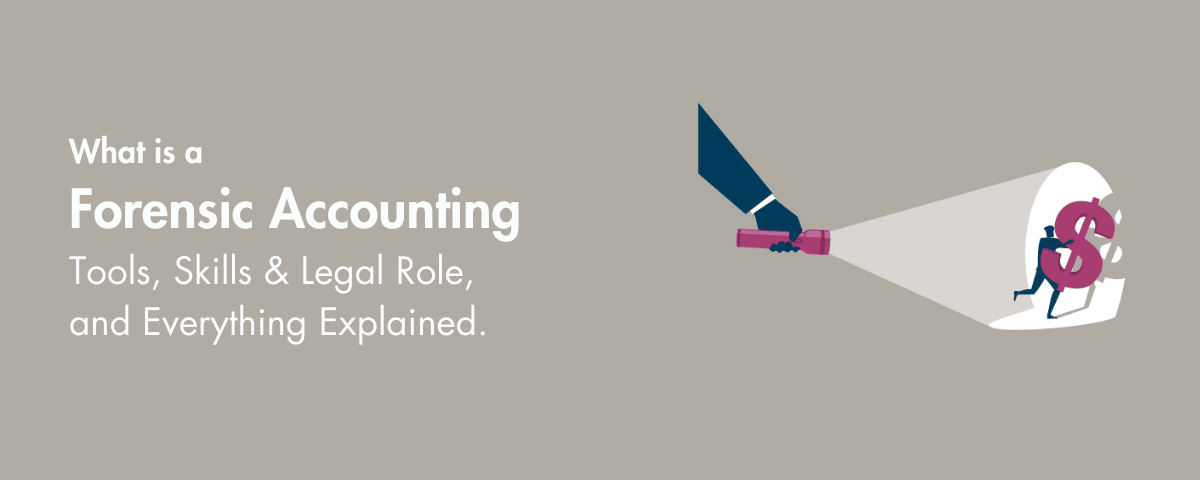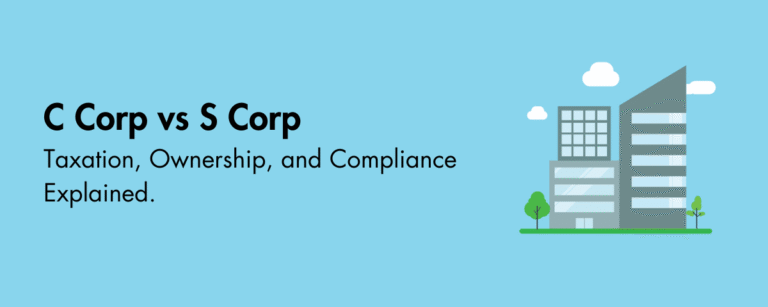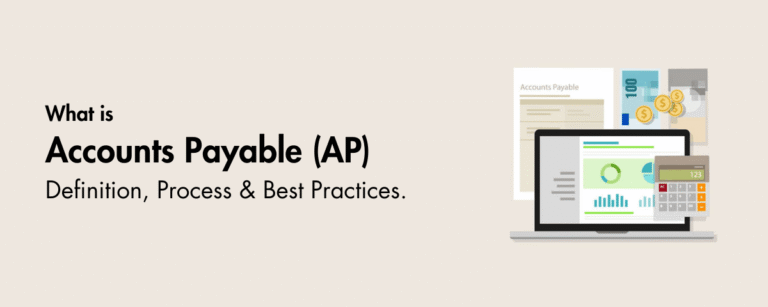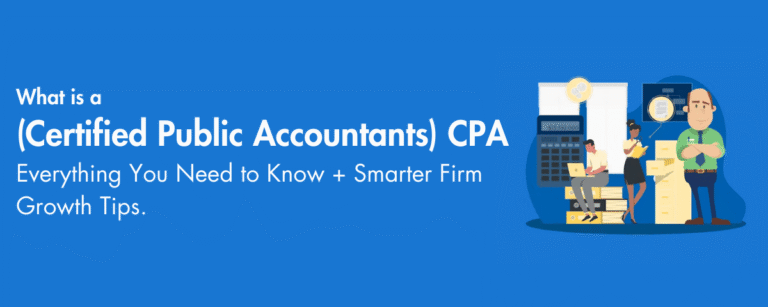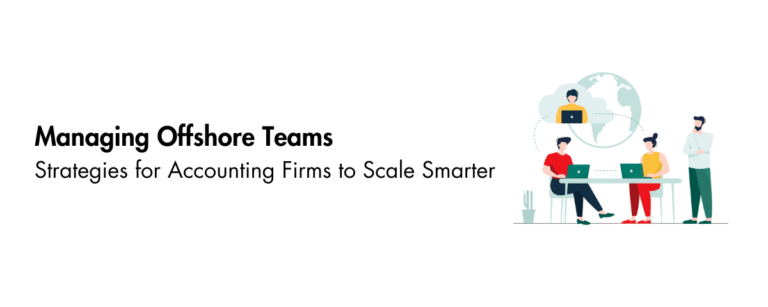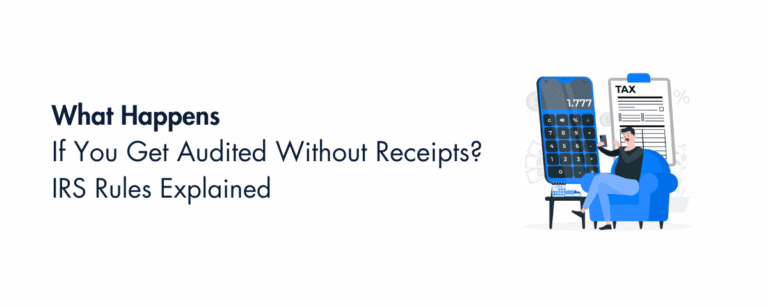Forensic accounting is where accounting meets investigation. It’s the financial detective work that helps uncover fraud, trace missing money, and present hard evidence in legal disputes. Whether it’s a business partner dispute, divorce, employee theft, or a massive fraud case, this is where you bring in the experts who specialize in turning messy records into courtroom-ready proof.
At Accountably, we know how critical these moments are. That’s why we support accounting firms with offshore experts who can step into complex situations, handle back-office investigations, and provide forensic accounting support so you don’t have to carry the burden alone.
Table of Contents
- TL;DR
- What Makes Forensic Accounting Different?
- What Do Forensic Accountants Actually Do?
- Their Toolbox: Valuation, Damage Assessment, and More
- Why Forensic Accountants Are Vital in Courtrooms
- The Toolkit: How Forensic Accountants Uncover the Truth
- What Kinds of Financial Crimes Do Forensic Accountants Investigate?
- How Forensic Accountants Catch Fraud
- How Forensic Accountants Uncover Money Laundering
- Asset Tracing and Recovery
- When Divorce Gets Financially Complicated, Forensic Accountants Step In
- How Do You Value a Business in a Legal Dispute?
- Calculating Economic Damages
- Forensic Accountants as Expert Witnesses
- Litigation Support: It’s More Than Testimony
- The Insurance Industry’s Secret Weapon? Forensic Accountants
- Quantifying Economic Damages for Insurance Claims
- Investigating Fraudulent Claims
- What Skills Do You Need to Be a Great Forensic Accountant?
- Certifications That Add Serious Credibility
- What Does It Take to Get Into Forensic Accounting?
- Career Paths: Where Can Forensic Accounting Take You?
- Why Continuing Education isn’t Optional
- Tools and Tech: What Forensic Accountants Use Behind the Scenes
- Ethics Matter: Why Integrity is Everything
- How Forensic Accounting Strengthens Corporate Governance
- Forensic Accounting + Legal Teams = A Powerful Partnership
- Resources for Aspiring or Scaling Forensic Teams
- Final Thoughts: Why This Matters for Your Firm
TL;DR
- Forensic accounting digs into the details when fraud or financial crime is suspected.
- It involves analyzing records, tracing suspicious transactions, and finding hidden assets.
- Forensic accountants often testify in court and help build a clear financial case.
- Their work is used in cases involving embezzlement, money laundering, securities fraud, and more.
- They rely on specialized tools and methods to produce clean, objective, court-ready reports.
What Makes Forensic Accounting Different?
If regular accounting is about tracking income and expenses, forensic accounting is about asking, “What’s really going on here?”
This discipline blends traditional accounting with auditing and investigation. You’re not just preparing financials, you’re picking them apart. You’re looking for inconsistencies, tracing illicit flows, and documenting findings that will hold up in court.
From suspicious vendor payments to shell companies hiding assets, a forensic accountant knows how to dig deeper and explain the story behind the numbers. It’s a critical function for law firms, courts, insurance companies, and yes, even for CPA firms like yours.
And if you don’t have this in-house? That’s exactly where Accountably comes in. Our offshore teams help accounting firms expand their capacity without compromising on quality, security, or compliance.
What Do Forensic Accountants Actually Do?
Forensic accountants aren’t just number crunchers, they’re the financial truth-tellers. Their job is to follow the money, uncover the story, and make complex financial records understandable to people outside the accounting world (like attorneys, judges, and juries).
Here’s what that looks like in practice:
| Function | What It Helps Uncover | Who Needs It |
| Tracing Funds | Detects financial crimes or misused money | Legal teams, insurers, CPA firms |
| Identifying Assets | Locates hidden income or property | Courts, law enforcement, divorce attorneys |
| Analyzing Data | Finds fraudulent activity in transactions | Consulting and accounting firms |
| Expert Testimony | Translates findings into court language | Legal teams, clients, and government bodies |
Whether it’s a $500K embezzlement or a bitter partnership split, forensic accountants do the heavy lifting behind the scenes, digging into every suspicious transaction, every financial trail, and every red flag.
Their Toolbox: Valuation, Damage Assessment, and More
Let’s say you’re working a divorce case. You suspect one party is hiding money. That’s when a forensic accountant gets involved, and their tools go way beyond spreadsheets.
Business Valuation
Determining a business’s true value isn’t easy, especially when people are incentivized to misreport numbers. Forensic accountants step in to assess fair market value using proven techniques like:
- Discounted Cash Flow (DCF)
- Comparable Company Analysis
- Asset-Based Valuation
They look at past and current performance, market conditions, even intangible assets like brand value or IP. These aren’t just guesses, they’re defensible valuations that stand up in court.
Economic Damage Calculations
From lost profits in a breach-of-contract case to diminished business value after a natural disaster, forensic accountants are often called on to quantify economic damages.
That means building a clear, evidence-backed picture of:
- How much was lost?
- How long will the impact last?
- What’s the financial reality?
They back their reports with historical data, financial modeling, and expert judgment. And yes, they’re often called to explain those findings under oath.
At Accountably, we’ve helped firms access forensic talent quickly, whether it’s to support a high-stakes litigation case or back up a valuation dispute. Our offshore teams can act as your back-office specialists, handling investigative reviews while you lead client conversations with confidence.
Why Forensic Accountants Are Vital in Courtrooms
When legal disputes involve complex financial records, forensic accountants become one of the most critical players in the room. Their job? Make the numbers make sense, to attorneys, to judges, and to juries.
They don’t just submit spreadsheets. They prepare clear reports, visual breakdowns, and expert insights that explain:
- Where the money went
- Who benefited
- What it means for the case
Their testimony often determines whether financial evidence is believed, or dismissed. And because these findings are scrutinized under pressure, every claim needs to be airtight, documented, and easy to explain.
This is where experience matters. At Accountably, our clients rely on offshore accounting teams to support litigation work with accuracy, discretion, and a deep understanding of financial compliance standards.
The Toolkit: How Forensic Accountants Uncover the Truth
If you’re picturing someone poring over paper ledgers with a magnifying glass, think again. Today’s forensic accountants use powerful software and investigative techniques to uncover fraud and financial irregularities. Some of the most common tools and methods include:
Data Mining and Forensic Analysis
They use tools like IDEA, ACL, or Power BI to comb through vast data sets looking for patterns, anomalies, or evidence of manipulation.
Transaction Testing and Audit Trails
By tracing specific transactions across multiple accounts, they piece together the full story, identifying where money went, who moved it, and why.
Pattern Recognition
Recurring red flags (like round-dollar transfers, frequent write-offs, or sudden cash withdrawals) are analyzed to catch potential fraud.
Digital Forensics
Deleted files? Encrypted emails? Forensic accountants collaborate with IT experts to recover and examine digital evidence, often uncovering what someone hoped would stay hidden.
Interviewing and Documentation
They also interview staff, review emails, and pull source documents to back up their findings. Every piece of evidence adds weight to their final report.
This kind of detailed, methodical work takes time and resources, two things many CPA firms are short on. That’s why Accountably helps you scale your investigative capabilities without needing to hire in-house. Our vetted offshore professionals integrate into your workflows to support even your most sensitive projects.
What Kinds of Financial Crimes Do Forensic Accountants Investigate?
If there’s money moving and something feels shady, chances are a forensic accountant has seen it before. These professionals are called in for everything from small internal theft to billion-dollar financial scandals.
Here are some of the most common types of cases they investigate:
| Crime Type | Example Case | What Makes It Tricky |
| Embezzlement | Employee skimming company funds | Transactions are often buried or disguised |
| Securities Fraud | Insider trading | Requires understanding market dynamics |
| Money Laundering | Moving funds via shell companies | Involves cross-border tracing, fake entities |
| IP Infringement | Stolen designs or patents | Valuation + proving ownership is complex |
These aren’t just theoretical cases. They impact real businesses, real people, and if mishandled, they can tank reputations or ruin financial stability.
How Forensic Accountants Catch Fraud
Uncovering fraud is part skill, part persistence, and part curiosity. Forensic accountants are trained to question everything, and they have the tools to back it up.
Here’s how they do it:
1. Dig Into the Data
They analyze financial records down to the granular level. That might mean pulling years of bank statements, invoices, emails, whatever it takes to follow the money trail.
2. Trace Transactions
Every fraud leaves breadcrumbs. Whether it’s duplicate vendor payments or wire transfers to personal accounts, forensic accountants track each step to understand where the fraud started, and where the money ended up.
3. Spot Patterns That Don’t Belong
A spike in expense reports? Payments just under approval limits? Too many round-dollar transactions? These are all red flags that a trained eye won’t miss.
4. Apply Forensic Software and Techniques
They use tools like IDEA, EnCase, or Tableau to visualize and flag anomalies that could be missed with the naked eye.
At Accountably, we’ve seen firsthand how overwhelmed accounting firms can get when fraud strikes. You’re juggling client trust, legal deadlines, and complex data. Our offshore forensic support lets your firm focus on strategy while we handle the detailed reviews, reporting, and evidence gathering.
How Forensic Accountants Uncover Money Laundering
Money laundering isn’t just about hiding cash, it’s about making illegal money look legitimate. And it’s often layered through complex systems that require trained experts to untangle.
Forensic accountants play a central role in identifying these schemes. Here’s how they get to the truth behind the transactions:
Tracing Illicit Financial Flows
Think of it like reverse-engineering a financial maze. Forensic accountants:
- Build a timeline from historical transaction records
- Identify accounts or companies used as “layers” to disguise funds
- Uncover ties to offshore entities or shell corporations
- Work with legal teams to connect the dots across jurisdictions
Using specialized software, they can track funds that jump across borders, pass through dummy corporations, or funnel into real estate, art, and luxury goods to disguise origin.
Detecting Suspicious Transaction Patterns
Some common red flags include:
- Frequent, unexplained cash deposits
- Transfers between unrelated entities
- Round-number wire transfers
- Transactions inconsistent with stated income
Forensic accountants compare a person or company’s financial behavior with industry norms. When something doesn’t add up, they dig in, often uncovering hidden fraud or even environmental crimes funded through laundered money.
Asset Tracing and Recovery
Once fraud or laundering is confirmed, the next challenge is finding and recovering the assets.
Here’s how that works:
- Analyze Transaction History: Identify where the money went (and when).
- Track Down Physical and Digital Assets: Bank accounts, investments, real estate, even luxury goods.
- Work With Legal Teams: Secure court orders to freeze or reclaim stolen assets.
- Coordinate With Law Enforcement: Especially in cross-border cases, legal cooperation is critical.
This is meticulous work, but it’s absolutely essential to help victims recover what’s theirs. Many CPA firms don’t have the bandwidth or specialists in-house, which is where Accountably comes in.
We provide experienced offshore teams that can step into your process, follow your guidance, and execute detailed asset tracing assignments with speed and accuracy, without draining your core team.
When Divorce Gets Financially Complicated, Forensic Accountants Step In
Divorce and family law cases often go far beyond emotional stress, they can turn into financial minefields. When one party is hiding assets, underreporting income, or playing games with valuations, it’s not enough to take their word for it.
That’s where forensic accountants step in. Their job is to bring transparency to the financial side of the case. And if you’re a CPA or attorney managing these disputes, you know how quickly things get murky. Forensic accounting gives you the financial clarity you need to fight for fair outcomes.
Tracing Hidden Assets
It’s not uncommon for a spouse to shift funds, open separate accounts, or transfer property to friends or relatives before filing for divorce. Forensic accountants know exactly where to look:
- Bank and brokerage account statements
- Tax returns and W-2s
- Property records and business filings
- Unusual transfers or credit card charges
They compare spending behavior with declared income to find gaps. If the numbers don’t add up, they investigate further, sometimes uncovering offshore accounts or undeclared business interests.
Valuing Assets Fairly
Once hidden income or property is found, the next step is figuring out what it’s all worth. That includes:
- Real estate
- Investments
- Business ownership
- Intangible assets (like IP or brand value)
Forensic accountants use defensible methods like fair market analysis or income-based valuation to present accurate, court-ready numbers.
Real Impact on Settlements
Judges and attorneys rely on forensic accountants’ reports and testimony to make big decisions about:
- Property division
- Spousal support
- Child support
And when things escalate to trial, forensic accountants often take the stand to explain their findings in plain English.
This kind of work is time-sensitive, high-stakes, and emotionally charged. At Accountably, we provide offshore experts who help firms like yours manage the behind-the-scenes work, so you can focus on client strategy and courtroom advocacy.
How Do You Value a Business in a Legal Dispute?
Whether it’s a partnership breakup, shareholder lawsuit, or divorce, business valuation in a legal context is never just about numbers on a balance sheet. It’s about presenting a true, defensible value that holds up under legal scrutiny.
That’s why forensic accountants don’t just estimate, they analyze. They dig into:
- Financial statements
- Tax returns
- Market comparisons
- Intangible assets like goodwill or IP
- Industry benchmarks
The goal? Deliver an expert, unbiased valuation using methods like:
- Discounted Cash Flow (DCF) – Projecting future earnings and adjusting for present value
- Comparable Company Analysis – Benchmarking against similar businesses
- Asset-Based Valuation – Totaling up what the business owns and owes
This isn’t just about arriving at a number, it’s about telling a clear financial story that’s backed by data and accepted in court.
Calculating Economic Damages
When something goes wrong, breach of contract, personal injury, business interruption, the question becomes: How much did this cost?
That’s what economic damages calculation is all about.
Forensic accountants are brought in to provide evidence-based answers to questions like:
- What income was lost?
- How much did the asset value drop?
- What are the future financial consequences?
They analyze past earnings, current market trends, and future projections. And they use financial modeling and industry research to calculate damages with courtroom-level precision.
Examples of Economic Damages:
| Type of Damage | Scenario | What’s Calculated |
| Lost Earnings | Personal injury, wrongful termination | Projected income minus actual income |
| Property Damage | Fire, flood, vandalism | Repair/replacement cost + depreciation |
| Business Interruption | Natural disaster, forced closure | Lost profits during downtime |
| Breach of Contract | Deal falls apart | Profits or revenue lost from non-performance |
These are more than numbers, they’re critical pieces of evidence. The wrong calculation could mean a missed settlement opportunity or a lost case.
With Accountably, you don’t need to handle all of this in-house. Our expert offshore teams help you manage the financial heavy lifting, clean data analysis, valuation modeling, damage projections, so your firm can operate lean and deliver top-tier service even in complex litigation.
Forensic Accountants as Expert Witnesses
When a case heads to trial, numbers alone won’t win the argument, you need someone who can explain the story behind the numbers with clarity, credibility, and confidence. That’s where forensic accountants come in as expert witnesses.
Their role goes far beyond running calculations. In the courtroom, they:
- Break down complex financial data into simple, digestible explanations
- Present findings in a neutral, objective way
- Hold up under cross-examination
- Help judges and juries understand financial implications of the case
Think of them as translators, fluent in accounting, but able to speak in plain English. Their testimony often becomes the linchpin of a successful case.
And when you need that kind of clarity fast? Accountably’s remote teams can support the expert’s work, pulling together clean exhibits, summaries, and documentation behind the scenes while your expert witness stays client-facing and trial-ready.
Litigation Support: It’s More Than Testimony
Forensic accountants also play a big role before a case ever reaches trial. Behind the scenes, they help build legal strategy by:
- Dissecting financial records
- Uncovering hidden assets or red flags
- Identifying gaps in documentation
- Preparing financial models for damages or valuations
- Supporting settlement negotiations with accurate, trusted data
| Litigation Support Service | Why It Matters |
| Damage Quantification | Helps set realistic expectations |
| Evidence Analysis | Identifies key strengths or weaknesses |
| Court-Ready Reports | Builds credibility and transparency |
| Mediation/Settlement Support | Facilitates resolution without trial |
If you’re managing multiple clients or court cases, keeping up with this level of detail can stretch your team thin. That’s exactly why CPA and law firms turn to Accountably, we extend your team with skilled, remote forensic professionals who handle the technical lift without sacrificing quality.
The Insurance Industry’s Secret Weapon? Forensic Accountants
When an insurance claim is filed, whether it’s for property damage, medical malpractice, or business interruption, there’s often a lot at stake. The numbers matter. And the truth behind those numbers? That’s where forensic accountants come in.
Insurance companies and policyholders both rely on forensic accounting to:
- Validate claims
- Quantify losses accurately
- Detect suspicious or exaggerated damages
- Defend or challenge payout amounts in court
Quantifying Economic Damages for Insurance Claims
Let’s say a business files a claim for lost income after a fire. It’s not just about estimating losses, it’s about proving them. That’s where forensic accountants provide real value.
Their process involves:
- Reviewing historical financial data
- Comparing pre- and post-incident performance
- Assessing market and industry context
- Calculating repair costs, replacement value, and lost income
All findings are documented clearly so insurers, courts, and attorneys can make informed decisions based on solid evidence.
Investigating Fraudulent Claims
Unfortunately, not all claims are honest. From staged car accidents to inflated medical bills, insurance fraud is a massive (and costly) problem.
Forensic accountants investigate suspicious claims by:
- Comparing reported losses to actual financial records
- Reviewing documentation for inconsistencies or red flags
- Analyzing spending or deposit patterns
- Identifying forged invoices or duplicate expenses
- Tracing transactions linked to shell companies or fake vendors
Their reports help insurers avoid unjustified payouts, and when necessary, forensic accountants testify in court to support fraud investigations.
At Accountably, we provide offshore forensic professionals who support insurers, law firms, and accounting firms in complex claim reviews. Our teams handle everything from financial analysis to fraud detection, so you can move faster and more confidently, even when the stakes are high.
What Skills Do You Need to Be a Great Forensic Accountant?
This isn’t your average accounting job. Forensic accounting demands a rare blend of precision, persistence, and people skills. Whether you’re preparing a court-ready report or explaining findings to a skeptical attorney, these are the key traits every top-tier forensic accountant brings to the table:
Analytical Thinking
You’re not just looking at what the numbers say, you’re asking why they say it. You need to identify patterns, spot inconsistencies, and follow money trails others miss.
Attention to Detail
One incorrect decimal point can change the outcome of a case. Forensic accountants obsess over the smallest discrepancies because that’s often where the truth hides.
Communication Skills
Can you explain complex financial issues in plain language to a judge or jury? That’s a must. Great forensic accountants are clear, calm, and persuasive communicators.
Tech Proficiency
From Excel to data mining software, digital forensics tools, and visualization platforms like Tableau, you need to be fluent in modern accounting tech.
Time Management
Forensic accountants often work under legal deadlines. Staying organized and responsive is just as important as being accurate.
Certifications That Add Serious Credibility
If you’re hiring a forensic accountant, or considering the field yourself, credentials matter. Some of the most respected certifications include:
- CFE (Certified Fraud Examiner)
- CPA (Certified Public Accountant)
- CFA (Chartered Financial Analyst)
- CBV (Certified Business Valuator)
- CFP, FRM, FMVA (for niche areas of finance and analysis)
These aren’t just fancy letters. They prove the accountant has advanced training in fraud detection, valuation, litigation support, and regulatory compliance. In fact, the ACFE reports that CFEs earn 32% more than non-certified peers, because expertise in this field pays off.
At Accountably, we connect accounting firms with offshore professionals who are not only skilled but certified and battle-tested. Whether you need help with fraud analysis, valuation reports, or expert witness prep, we’ve got the talent ready to plug into your team.
What Does It Take to Get Into Forensic Accounting?
You don’t need a Sherlock Holmes hat, but you do need a solid mix of education, training, and hands-on experience.
Here’s a typical path into the field:
- Start with a Bachelor’s Degree
Most forensic accountants begin with degrees in accounting, finance, or economics. Some also study criminal justice or law to build investigative foundations. - Gain Real-World Experience
Before specializing, many professionals cut their teeth in auditing, tax, or financial analysis roles. This builds the instincts needed to spot when something’s off. - Earn Certifications
As mentioned earlier, designations like CPA, CFE, or CFA can elevate your credibility and unlock higher-paying opportunities. - Stay Curious
The best forensic accountants never stop learning. They dig deeper, ask better questions, and keep up with changes in fraud schemes, legal standards, and tech.
Career Paths: Where Can Forensic Accounting Take You?
This isn’t a one-size-fits-all career. Once you’re trained in forensic accounting, you can work in a variety of roles, including:
| Career Path | Primary Focus |
| Public Accounting Firms | Fraud investigation, asset tracing |
| Law Enforcement Agencies | Criminal investigations, compliance |
| Corporate In-House Teams | Internal audits, fraud prevention |
| Legal Support Firms | Litigation consulting and expert testimony |
| Independent Consultant | Specialized case work, court prep |
And if you’re a CPA firm leader, there’s huge value in having forensic accounting capability on call. It adds value to your services, builds trust with clients, and opens the door to high-profile legal work.
That’s why many firms partner with Accountably, we help you scale that capability through experienced offshore staff who know forensic workflows and compliance standards inside and out.
Why Continuing Education isn’t Optional
Fraud doesn’t stay still. Neither do laws, financial regulations, or technology. If you’re serious about forensic accounting, ongoing professional development (CPD) is essential.
That includes:
- Learning new investigative tools and techniques
- Keeping up with changes to AML, GDPR, or Sarbanes-Oxley
- Studying real case studies to understand how legal precedent is shifting
- Exploring new fraud risks, like crypto crimes or digital asset misreporting
Many of these are offered through professional organizations like the ACFE, AICPA, or CFA Institute. They provide workshops, webinars, and advanced certification courses tailored to forensic professionals.
Tools and Tech: What Forensic Accountants Use Behind the Scenes
Modern forensic accounting isn’t done with pen and paper. It’s tech-heavy, fast-moving, and depends on advanced tools that help sift through massive data sets.
Here’s what you’ll typically find in a forensic accountant’s digital toolbox:
Investigation & Data Tools
- IDEA, ACL – Analyze large volumes of financial transactions
- EnCase, Cellebrite, FTK – Recover deleted digital files, trace device usage
- Power BI, Tableau – Create visual reports and dashboards for courtroom or client presentations
Emerging Tech
- AI & Machine Learning – Spot trends and anomalies at scale
- Data Visualization – Make financial stories digestible for non-experts
- Cloud Platforms – Collaborate on investigations remotely and securely
With these tools, forensic accountants can go deeper, faster, and with Accountably, your firm can access this level of digital expertise without having to build it all in-house.
Ethics Matter: Why Integrity is Everything
In forensic accounting, your reputation is your currency. Because your reports often influence legal judgments and high-stakes financial outcomes, you must operate with unshakable integrity.
That means:
- Maintaining independence and objectivity
- Protecting confidential financial data
- Following regulatory standards (SOX, AML, GDPR)
- Avoiding conflicts of interest at all costs
- Backing up every claim with clear documentation
Certifying bodies like AICPA and ACFE also hold members to strict ethical codes. Violating those standards doesn’t just risk a lost case, it can end a career.
How Forensic Accounting Strengthens Corporate Governance
It’s not just about catching fraud after it happens. Forensic accounting can also prevent it by adding layers of accountability within companies.
Here’s how it supports stronger governance:
- Exposes vulnerabilities in internal controls
- Encourages transparency in financial reporting
- Increases board oversight and stakeholder confidence
- Supports compliance with environmental and financial regulations
In a world where one scandal can destroy a company’s value overnight, forensic accounting isn’t optional, it’s protection.
At Accountably, we help accounting firms and finance leaders proactively integrate these insights into their governance practices by providing on-demand offshore teams ready to audit, analyze, and advise.
Forensic Accounting + Legal Teams = A Powerful Partnership
When legal teams and forensic accountants work together, financial truth comes to light faster, and with more impact.
Forensic accountants play a crucial role in legal cases by:
- Conducting joint investigations with attorneys and law enforcement
- Preparing evidence that meets strict legal standards
- Translating financial data into court-ready language
- Helping lawyers trace funds, identify fraud, and structure legal arguments
They’re not just advisors, they’re strategic partners. And when your firm needs to scale that expertise? That’s where Accountably steps in.
We help CPA firms, law offices, and financial institutions bring in offshore forensic specialists who understand U.S. compliance, work under your direction, and help deliver airtight results.
Resources for Aspiring or Scaling Forensic Teams
Looking to strengthen your in-house team, or even explore forensic accounting as a service?
Here are some helpful resources:
| Resource Type | Where to Look | Purpose |
| Certifications | ACFE, AICPA | Get certified as a CFE or CPA |
| Courses & Training | CFI, Coursera, EdX | Learn business valuation and analytics |
| Tools & Software | IDEA, Power BI, Tableau | Perform advanced financial analysis |
| Case Studies & Webinars | ACFE, COSO, Accountably Blog | Learn from real investigations |
Tip: Bookmark the Accountably blog, you’ll find more guides like this to help your firm grow smarter and faster.
Final Thoughts: Why This Matters for Your Firm
Forensic accounting isn’t just about crunching numbers, it’s about telling the truth, protecting people, and making sure financial wrongdoing doesn’t go unchecked.
If you’re a CPA, EA, or firm leader juggling complex client work, tight deadlines, and growing compliance demands, you don’t have to do it alone.
At Accountably, we offer expert offshore staffing solutions that give you instant access to trained professionals who specialize in:
- Forensic audits
- Asset tracing
- Litigation support
- Economic damages calculations
- Financial fraud investigations
We don’t just help you scale, we help you stay sharp, stay compliant, and stay focused on what matters most: your clients.
Want to Add Forensic Accounting Support Without Hiring In-House?
Let’s talk. Whether you’re building a forensic service line or need short-term help on a high-stakes case, Accountably can match you with skilled offshore professionals ready to support your team.
Visit Accountably.com to learn how we can help your firm grow with confidence.


